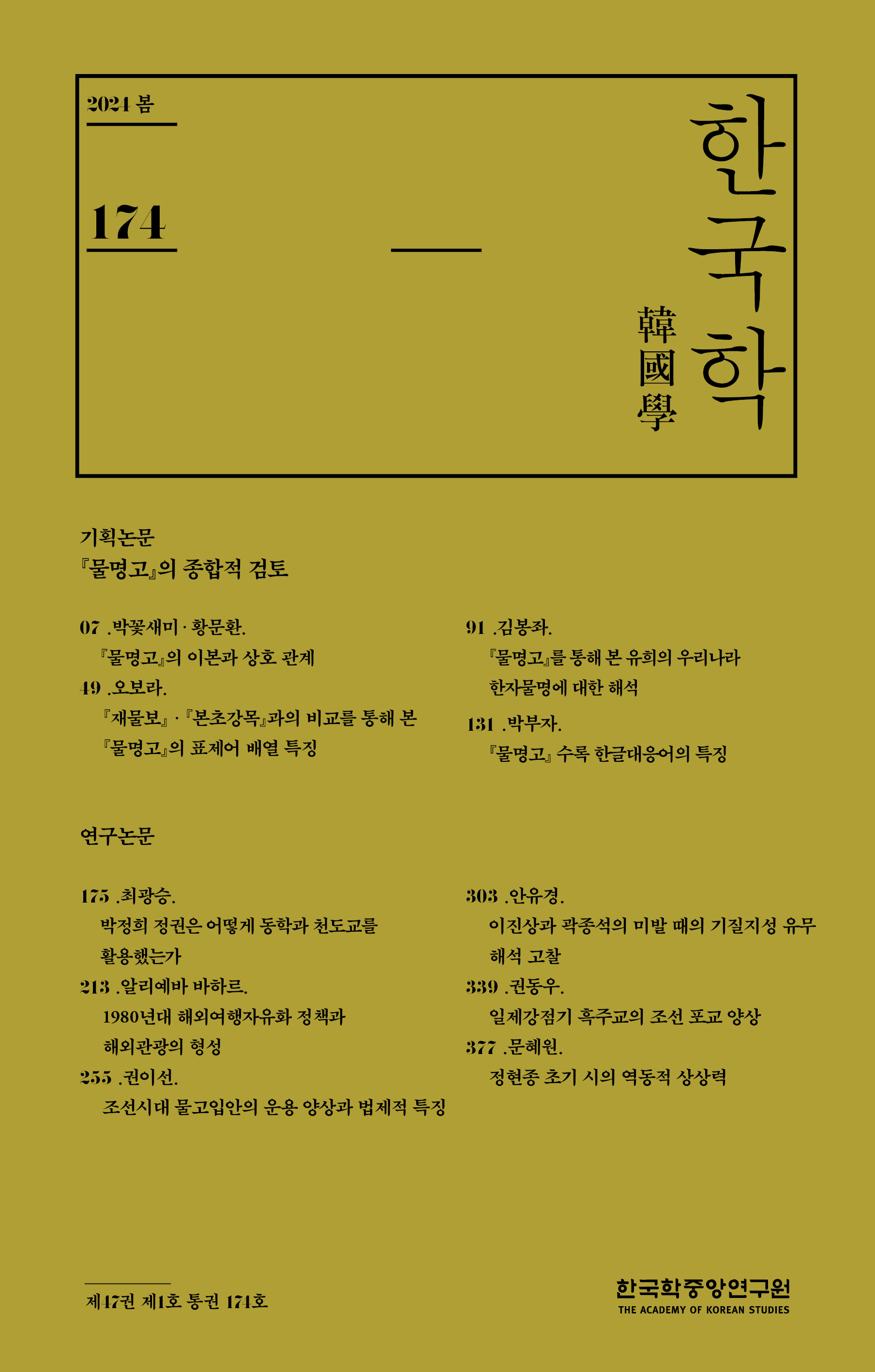
- P-ISSN 2671-8197
- E-ISSN 2733-936X
곤도 마스키(近藤真鋤, 1840‒1892)는 1870년 일본 외무성에 들어가 1876년 부산항 관리관으로 임명된 이래 조선 주재 영사와 대리공사 등을 역임하며 15년간 대 조선 외교에 일관한 인물이다. 그의 사후 1893년 그의 작품집 『눌헌유고(訥軒遺稿)』가 출판되었다. 『눌헌유고』에는 서문과 발문 외에 총 69편의 한시와 산문이 실려 있다. 그 중 약 1/2이 곤도가 조선에서 외교관으로 활동하던 시기와 관련된다. 따라서 『눌헌유고』는 곤도 개인의 작품집이지만 조선 주재 일본 외교관이 조선에 대한 이미지와 인식을 서술한 자료라고 할 수 있다. 1860년대 교토 공가와의 네트워크를 배경으로 메이지기 외교관으로 진출한 곤도는 1870‒1880년대 일본 외교관으로서 조선에 체류하면서 조선과 일본을 비문명과 문명의 이미지로 형상화한다. 그리고 조선에 대한 역사 인식을 전제로 일본의 선도에 의한 문명화를 명분으로 내세우며, 조선에 대한 정복의 시선을 구체화한다. 즉 일본의 외교관이 한문학을 통해 조선의 상황을 ‘치와(痴蛙)’, 내우외환(內憂外患)’, ‘누란(累卵)’ 등의 단어로 규정하면서 조선에 대한 정복을 욕망한 것이다.
Kondo Maski (近藤真鋤, 1840‒1892) joined the Japanese Foreign Ministry in 1870. Appointed as a Busan port manager in 1876, he served as a consular officer and chargé d’affaires in Korea, working for Japanese diplomatic relations in Korea for 15 years. After his death, his book, Nulhun Yugo (訥軒遺稿) was published in 1893, which included 69 Chinese‒language poems and proses in addition to a preface and a postscript. About one‒half of them relate to the period of his diplomatic assignment in Korea. While Nulhun Yugo is a collection of Kondo’s writings, it may be understood as being reflective of the overall view of Japanese diplomats toward Korea at the time. Kondo advanced to the Meiji diplomatic mission in the 1860s through the network of the Kyoto Kuge (公家) and served as a Japanese diplomat from the 1870s to the 1980s. During his stay in Korea, he portrayed Korea and Japan with the image of uncivilization vs. civilization. Based on the historical awareness, he projected the view of conquering Korea on the excuse of making Korea civilized under Japanese leadership. He employed Chinese‒language literary forms to define the conditions of Korea as being a ‘big fish in a little pond,’ ‘in internal and external woes,’ and ‘at the brink of collapse’ and call for its overthrow.
近藤愿吉·高橋剛吉, 『訥軒遺稿』. 1893.
近藤真鋤 和解, 『朝鮮八域誌』. 1881.
近藤真鋤, 「朝鮮に就いて」. 『東京地学協会報告』 第十三年第壱號, 1891.
石幡貞, 「近藤眞鋤傳」. 『東嶽文抄』 3권, 1910.
「国立公文書館 デジタルアーカイブ」.
『高宗實錄』.
山口久雄編, 『幕末明治 海外体験詩集』. 大東文化大学, 1984
허경진, 「일본 시인 이시바타 사다의 눈에 비친 19세기 부산의 모습」. 『인문학논총』 15‒1, 2010, 49‒71쪽.
大沼宜規, 「日本漢詩翻訳索引」. 『参考書誌研究』 75, 2011, 1‒21쪽.